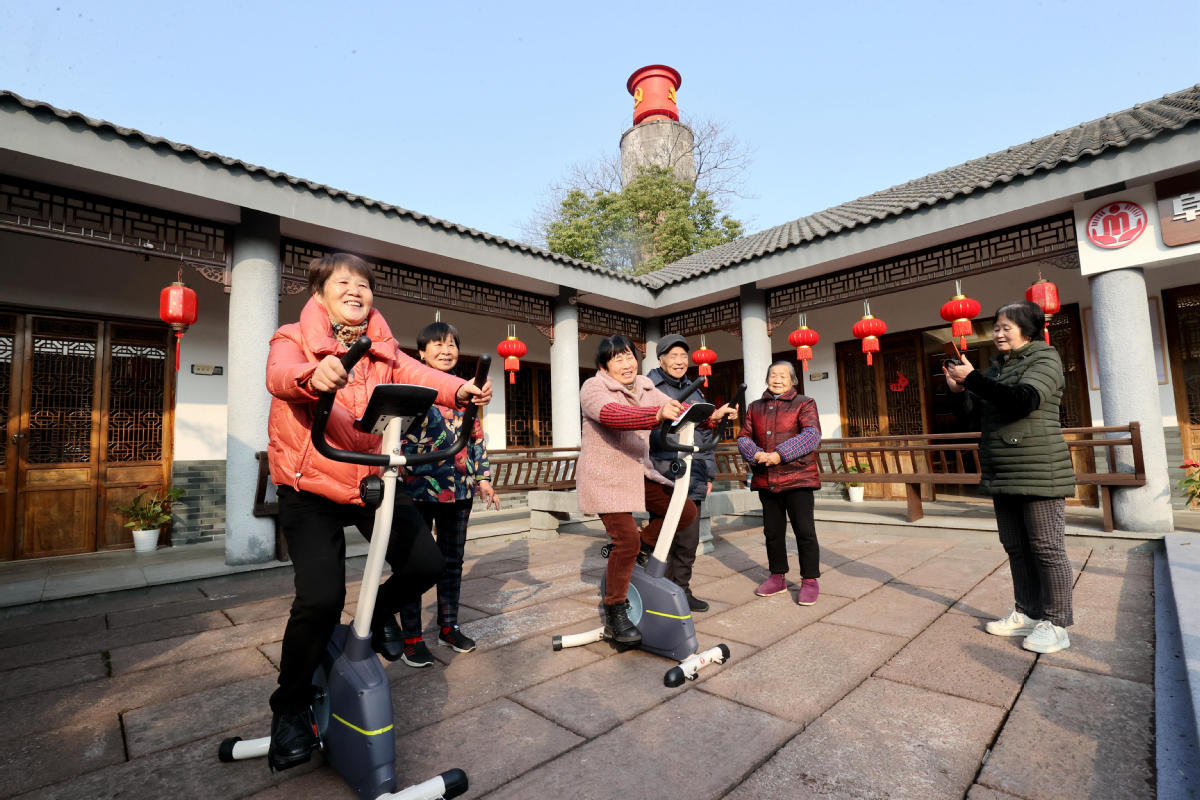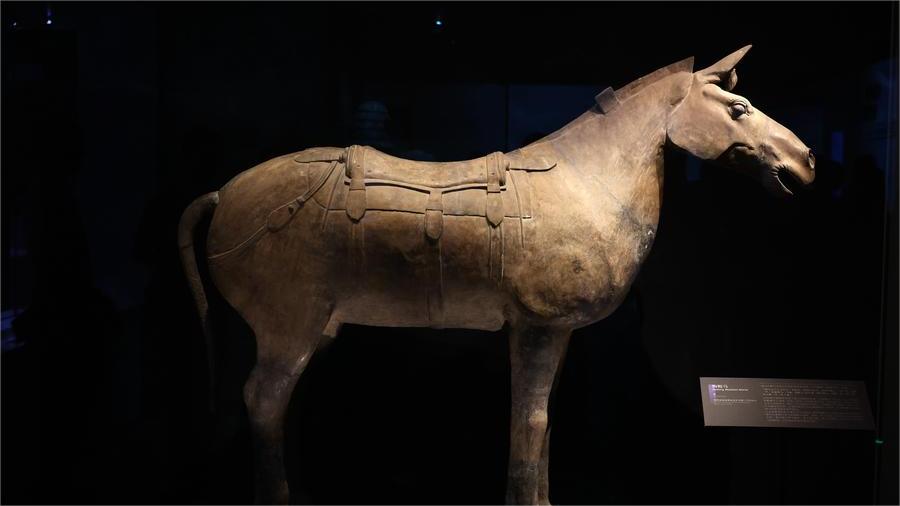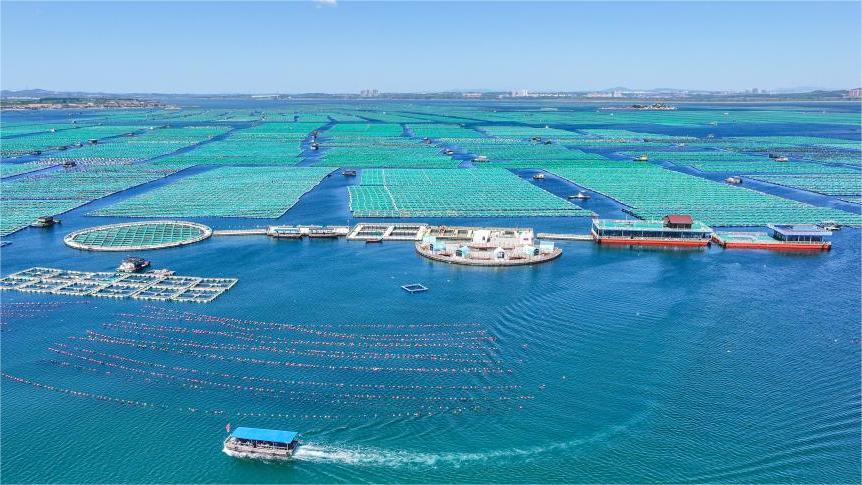China's silver economy shows enormous business potential
The silver economy, which refers to economic activities offering products or services for the elderly, enjoys huge development potential in China, a country with a large aging population.
Data released by the National Bureau of Statistics of China shows that China's population aged 60 and above exceeded 290 million by the end of 2023, accounting for 21.1 percent of the country's total population.
Hu Zuquan, director of the population development research office of the Department of Economic Forecasting at the State Information Center, said “silver economy” is a collective term encompassing a series of economic activities aimed at providing products or services to older adults. It involves a wide range of fields with a long industrial chain and diverse types of businesses, covering the primary, secondary and tertiary industries, and creates huge business opportunities.

Seniors exercise at an elderly care center in a community in Deqing county, Huzhou, Zhejiang Province, on Feb 16, 2023. In recent years, Deqing has been exploring the use of information technology to offer "smart elderly care" services for older people. (Photo/Xinhua)
Currently, China's silver economy stands at around 7 trillion yuan ($967.2 billion) in size and is expected to reach 30 trillion yuan by 2035.
There is great demand among senior citizens for meal assistance services, bathing services, house cleaning services, elderly education, and so on.
The diversified and personalized needs of the elderly are increasing at a considerable pace, and China needs to develop the silver economy in order to realize elderly people's aspirations for a better life. It will also inject new vitality into high-quality economic and social development.
In January this year, the State Council, China's cabinet, rolled out a guideline to improve elderly people's well-being, calling for efforts to solve pressing difficulties and concerns, expand the supply scale, cultivate potential industries, and optimize the development environment for the silver economy.
"I believe that with policy support and participation from all sectors of society, China's silver economy will usher in a period of rapid growth," said Hu.
In Beihang neighborhood, Huayuanlu subdistrict, Haidian district, Beijing, more than 500 households with elderly residents have AI-empowered robots in their homes. These robots can help senior citizens book taxis, remind them to take medicine, chat with them, and let them enjoy entertainment programs. If an elderly person falls at home, the robot can even use its voice to call for help.
AI-empowered robots with rich elderly care functions have become the new favorites of Chinese senior citizens. According to statistics, the market size of China's products for elderly people reached 5 trillion yuan in 2023.
Relevant authorities have guided manufacturing enterprises to make great efforts to increase the variety, improve the quality, and enhance brand recognition of products for seniors.
China's Ministry of Industry and Information Technology has issued two catalogs of products for elderly people, mainly focusing on 631 high-quality products such as elderly people’s clothing and accessories, companion robots, smart monitoring devices, and multi-functional nursing beds.
China’s make-up for elderly care services has been called "9073." About 90 percent of elderly Chinese are cared for at home, while about 7 percent rely on community-level assistance in day-care and other facilities, and only 3 percent live in retirement homes, according to data released by China's National Health Commission (NHC).
The country plans to build 5,000 exemplary elderly-friendly communities in both urban and rural areas by 2025 and aims to make all urban and rural communities nationwide elderly-friendly by the end of 2035, according to a circular published by the NHC and the Office of the National Working Commission on Aging.
"China's silver economy has enormous development potential," said Jiang Xiangqun, a professor with the School of Sociology and Population Studies at Renmin University of China.
Currently, there is pressing demand for those in their 60s and 70s for services and products related to health, wellness, medical care, and so on, Jiang noted.
"In the future, an increasing number of tech-savvy, fashion-loving, energetic and quality-conscious elderly people will drive the improvement of elderly care needs and consumption structure, which is expected to inject new vitality into economic and social development," Jiang added.
Photos
Related Stories
- Elderly people embrace diverse lifestyles in China
- China bolsters public legal services for elderly citizens
- Activities held across China to celebrate Chongyang Festival
- China releases national standard for elderly home care
- Man blocks rush-hour traffic for elderly man
- Elderly adapted apartments give residents golden years
- Nursing home in E China's Hangzhou recruits young people to accompany elderly people
- "Seniors' classrooms" bring better cultural life to elderly in SE China's Fujian province
Copyright © 2024 People's Daily Online. All Rights Reserved.









